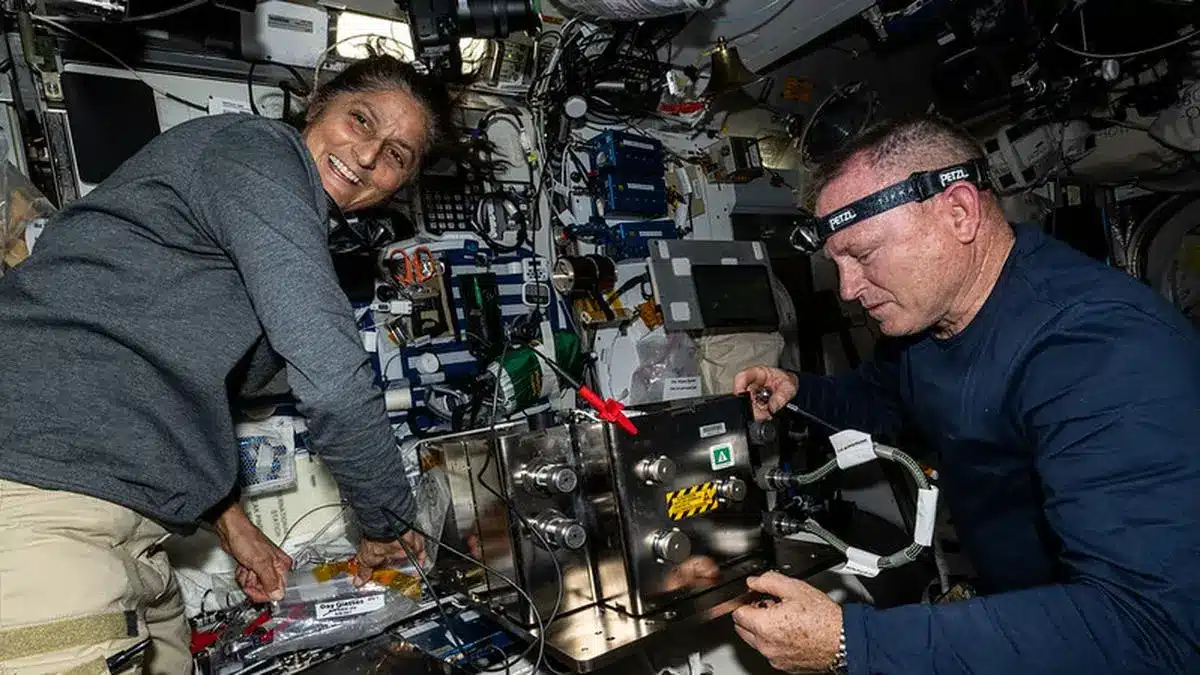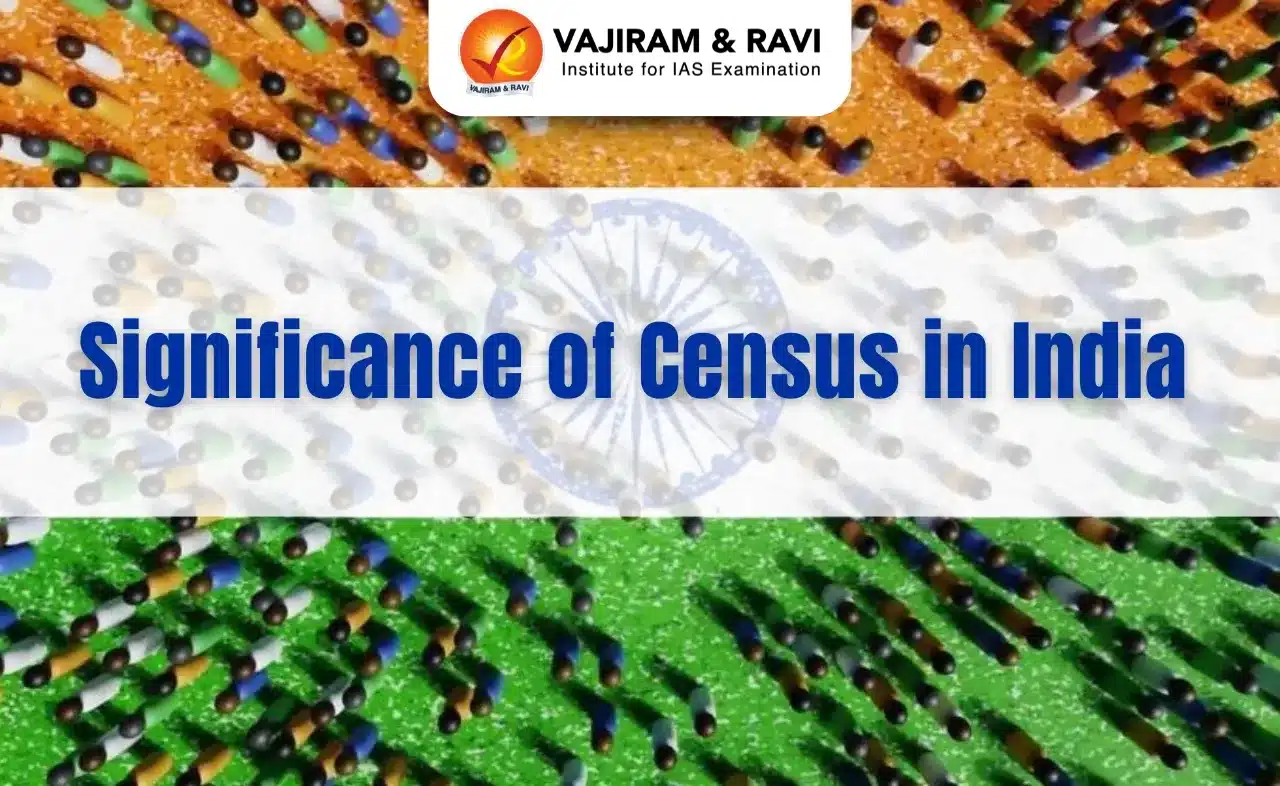What’s in today’s article?
- Background
- Understanding Space & Microgravity
- Effects on Human Body
- How Does Astronauts Counter These Effects?
- How Much Time are Humans Spending in Space?
Background
- On August 24, NASA announced that Boeing’s Starliner crew capsule, which had transported astronauts Sunita Williams and Barry Wilmore to the International Space Station (ISS) for its first crewed test flight, was deemed unsafe for their return journey.
- As a result, NASA has extended Williams and Wilmore’s stay on the ISS until February 2025.
- They are scheduled to return aboard a SpaceX crew capsule, set to launch in September 2024.
- Meanwhile, Boeing’s Starliner will undock and return to Earth without any crew on board.
Understanding Space & Microgravity
- Space is defined by its conditions, which differ vastly from Earth.
- Space begins at the Karman line, 100 km above sea level, where gravity significantly weakens but does not disappear.
- This microgravity environment affects various bodily functions, leading to several health issues for astronauts.
Effects on Human Body
- Bones: In microgravity, bones weaken due to the lack of weight-bearing activities, which may cause the body to deposit excess minerals in the kidneys, leading to kidney stones.
- Digestion: The digestive system slows down, potentially leading to weight gain.
- Eyes: Spaceflight-associated neuro-ocular syndrome (SANS) is a condition affecting eyesight, caused by fluid accumulation in the head.
- Heart and Muscles: The heart may shrink due to reduced workload, and muscle mass can decrease, leading to overall weakness.
- Blood and Brain: The body loses more red blood cells, requiring dietary adjustments. The brain works harder to maintain balance and orientation due to altered signals from the body in microgravity.
How Does Astronauts Counter These Effects?
- Countermeasures and Research:
- Space agencies have implemented strict exercise regimes and predictable routines to help mitigate these effects.
- Researchers are also exploring the impact of different nutrients and drugs in space, as well as developing new technologies and protocols to monitor and manage health issues.
- Japan’s KAKENHI programme is studying biological responses to various parts of the space environment.
- Europe’s Space Omics Topical Team is developing space omics tools and methods.
- In the U.S., the ‘Complement of Integrated Protocols for Human Exploration Research’ project allows astronauts to sign up for experiments in space that will study their health in standardised ways.
- Scientists from around the world, including India, are part of the International Standards for Space Omics Processing to develop research and ethics guidelines.
How Much Time are Humans Spending in Space?
- Increase in Space Mission Duration:
- In the 1960s, astronauts spent an average of one month in space. By the 2020s, this has increased to six months.
- Each expedition to the ISS now lasts up to six months.
- Evolution of Space Missions:
- Less than a century ago, going to the moon was considered a long-duration space mission.
- Today, space agencies from various countries, including China, India, Japan, Russia, and the U.S., are planning permanent stations on the moon and human missions to Mars.
- These new long-duration missions will introduce new safety challenges.
- Records in Space:
- 11 individuals have spent more than 300 days in space on a single mission.
- The record for the longest single mission is held by Russia’s Valeri Polyakov with 437 days.
- The American record is held by Frank Rubio with 370 days.
- Oleg Kononenko is the only astronaut to have spent more than 1,000 days in space across multiple missions.
- Peggy Whitson, a U.S. astronaut, has spent 675 days in space, making her the second active spacefarer on this list.
- If Sunita Williams and Barry Wilmore’s current trip ends on February 15, 2025, they will have spent 256 days in orbit.
Q1. What is a Galactic Halo?
Galactic halo, in astronomy, is a nearly spherical volume of thinly scattered stars, globular clusters of stars, and tenuous gas observed surrounding spiral galaxies, including the Milky Way—the galaxy in which the Earth is located.
Q2. What is the difference between Asteroid and Meteor?
Asteroids are smaller than a planet, but they are larger than the pebble-size objects we call meteoroids. A meteor is what happens when a meteoroid – a small piece of an asteroid or comet – burns up upon entering Earth’s atmosphere, creating a streak of light in the sky.
Source: What does spaceflight do to the human body? | Explained
Last updated on June, 2025
→ UPSC Notification 2025 was released on 22nd January 2025.
→ UPSC Prelims Result 2025 is out now for the CSE held on 25 May 2025.
→ UPSC Prelims Question Paper 2025 and Unofficial Prelims Answer Key 2025 are available now.
→ UPSC Calendar 2026 is released on 15th May, 2025.
→ The UPSC Vacancy 2025 were released 1129, out of which 979 were for UPSC CSE and remaining 150 are for UPSC IFoS.
→ UPSC Mains 2025 will be conducted on 22nd August 2025.
→ UPSC Prelims 2026 will be conducted on 24th May, 2026 & UPSC Mains 2026 will be conducted on 21st August 2026.
→ The UPSC Selection Process is of 3 stages-Prelims, Mains and Interview.
→ UPSC Result 2024 is released with latest UPSC Marksheet 2024. Check Now!
→ UPSC Toppers List 2024 is released now. Shakti Dubey is UPSC AIR 1 2024 Topper.
→ Also check Best IAS Coaching in Delhi






















